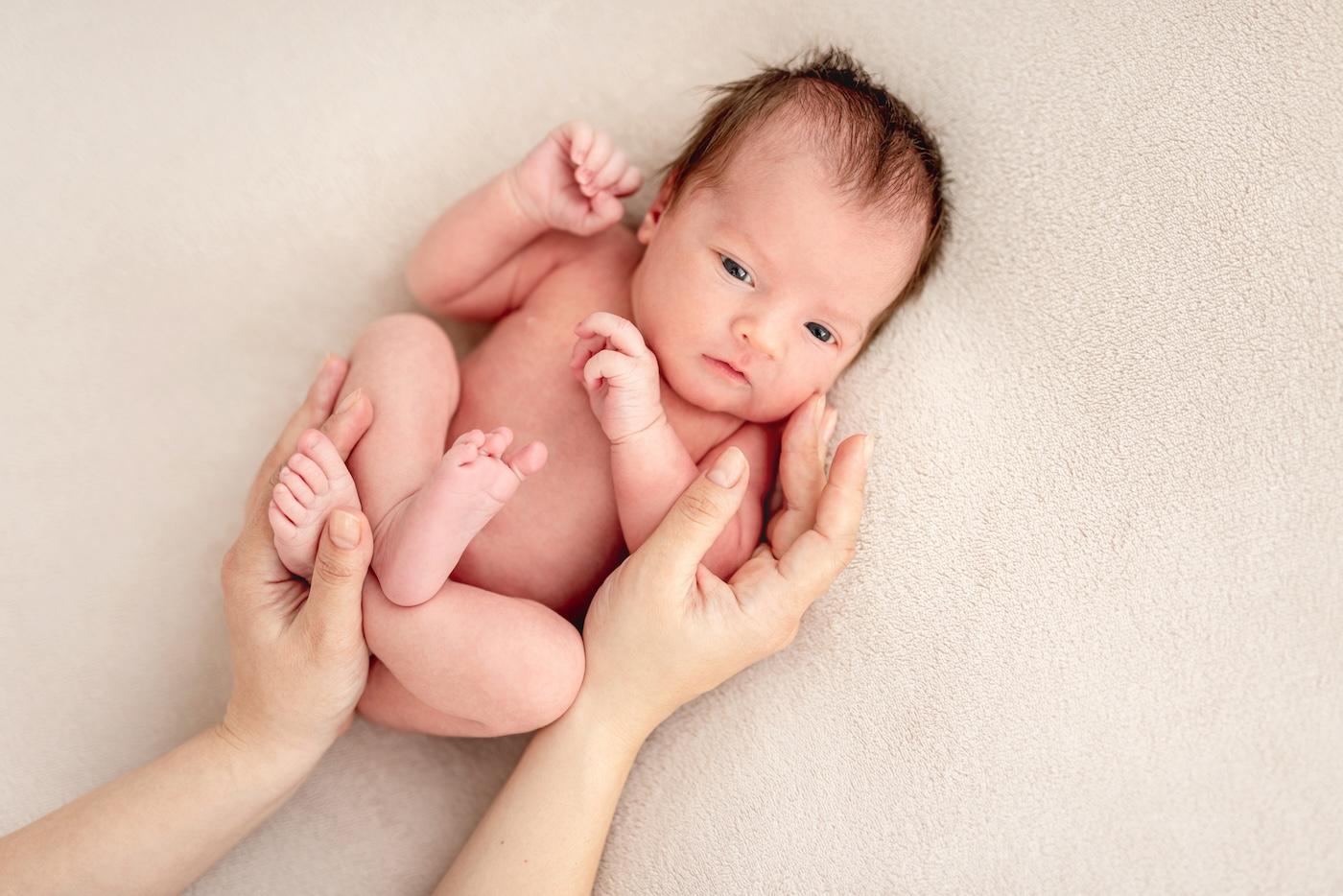BABY
Real & Imagined Reasons Babies Cry
Thank God babies cry! Otherwise, we’d never know when they need our help.

Written by
Dr. Harvey Karp

Why Do Babies Cry?
All babies cry. And it is a good thing they do! Otherwise, we would never know when they need our help.
Some mild-tempered babies just whimper for minutes, vying for our attention, even when they are super-hungry. Other spirited babies overreact and launch into blood-curdling screams, even when they just want a little holding or a nappy change!
Regardless of how easy-going or dramatic your child is, you will just have to figure out what is going on and respond to your baby’s cry the best you can.
5 Mostly Imagined Reasons Why Babies Cry
Here are 5 things you may hear…that almost never happen when your newborn baby cries.
- Your baby is mad at you.
Nope! It takes months for them to learn anger.
- Your baby senses your anxiety.
Nope! Your little one does not have the psychological skills to determine if you are anxious, depressed, or frustrated.
- Your baby has a wet nappy.
Nope! A study was done in which a wet nappy was removed from crying babies. Then the wet nappy was put right back on. Most babies calmed right down, even though they were still sitting in dampness!
- Your baby has acid reflux pain.
Very rarely! All babies have reflux (we call it ‘spitting up’), but it is hardly ever a reason for crying. As long as they are gaining weight nicely and not vomiting more than 5 times a day, skip the medicine and focus on soothing with the 5 S’s. Yet still, acid reflux remains a common concern of parents. Read more about it here, and of course, discuss your baby's symptoms with your healthcare provider.
- Your baby needs probiotics.
Nope! Bad bacteria are rarely a problem because a) Premature babies have tons of bad intestinal bacteria, yet never get colic before their due date; b) Breastfed babies have “sweeter’ intestinal bacteria, but have just as much colicky crying as formula-fed babies; c) colic disappears after 3-4 months, yet those bigger babies still have plenty of smelly germs in their poo.
5 Very Real Reasons Why Your Baby Cries
Focus on these and stop worrying about the other stuff!
- Your baby is crying because they are hungry.
This is the first thing to check. Even if you fed your baby 30 minutes ago, they might just need a touch more to be satisfied.
- They are uncomfortable.
Today you do not need to worry about pokes from open safety pins, but do check if your baby is hot, cold, or has a nappy rash. These are common reasons why newborns cry.
- They have tummy pain.
Some sensitive babies hate the normal peristalsis—tightening of the intestines—that happens after eating. But, a little tummy massage or the5 S’s usually do the trick. BTW, no studies have proven any benefit from ‘gripe water’ or ‘burp drops.’
- They are over-excited or over-tired.
Noise and commotion can overwhelm a baby. And, keeping your baby awake…to make them extra tired…so they will sleep longer at night…usually BACKFIRES! Overtired babies cry more in the day, and wake more at night!
- They want to be held by you!
In the womb, your baby had non-stop cosy touch. That is why fussy babies often calm as soon as they are held, carried in a sling, put skin-to-skin, or swaddled snugly.
But, if you check everything and your baby is still upset, then there is…
One More BIG Reason Why Babies Cry
They are under-stimulated!
Remember, life in the womb is one of constant jiggles and whooshing. So, spending too much time in a quiet, still place can make your baby a little crazy!
Why Do Babies Cry for No Reason?
If your baby seems to be crying for ‘no reason,’ then it means it is time to try the 5 S’s. Most of the time, when it appears your baby is crying for no reason, it is simply because your baby is unsettled by the world around them. They are used to the snug, bustling surroundings of the womb. You can learn more about 5 S’s here.
Disclaimer: The information on our site is NOT medical advice for any specific person or condition. It is only meant as general information. If you have any medical questions and concerns about your child or yourself, please contact your health provider. Breastmilk is the best source of nutrition for babies. It is important that, in preparation for and during breastfeeding, mothers eat a healthy, balanced diet. Combined breast- and bottle-feeding in the first weeks of life may reduce the supply of a mother's breastmilk and reversing the decision not to breastfeed is difficult. If you do decide to use infant formula, you should follow instructions carefully.
SHARE THIS ARTICLE
PARENT PICKS
Bestsellers



















